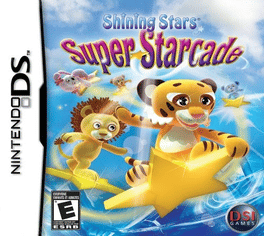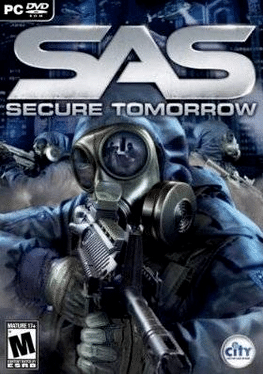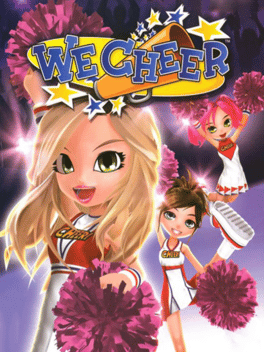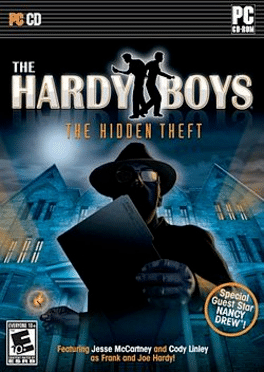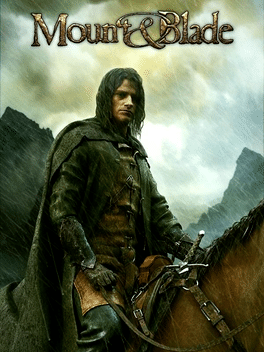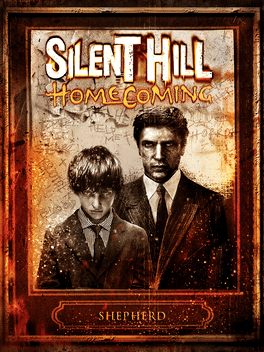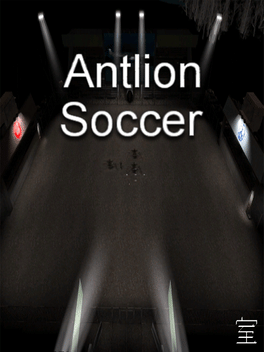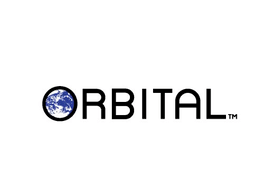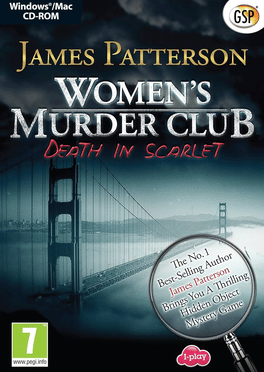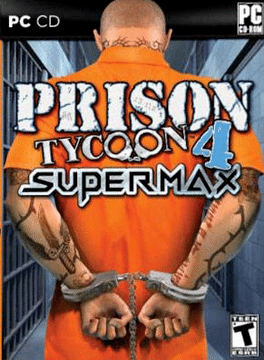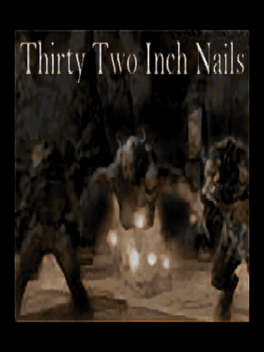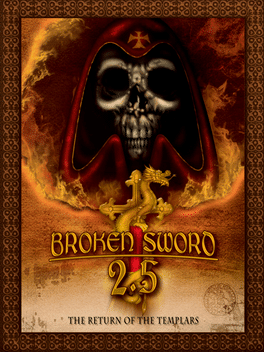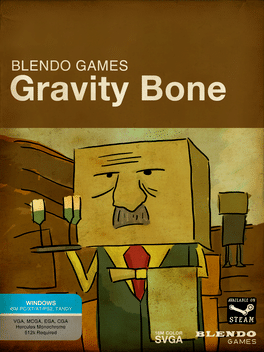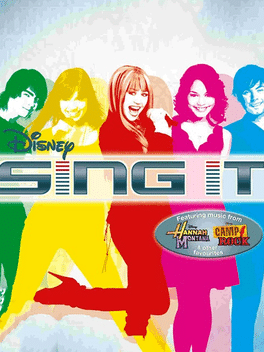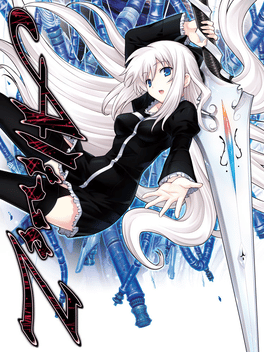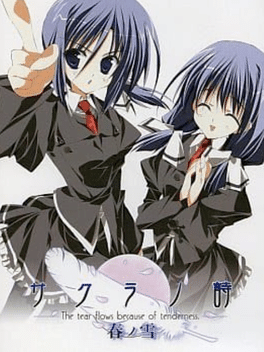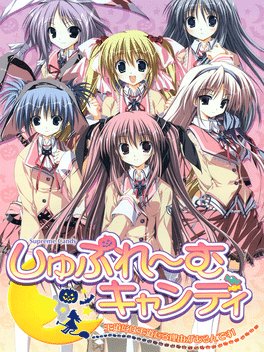New Games - Page 9926
-
Shining Stars Super Starcade
2008
Shape your park with a variety of attractions, games, facilities and decorations. As more guests attend the park and play the various games the player will earn Glow Points which they can then use to buy even more attractions. -
Unsolved Crimes
2008
Unsolved Crimes
2008
star 6.7The game is set in New York City. The player is a rookie detective from the homicide division. There are eight cases in the game, and one larger case divided into sections. In this case, a model named Betsy Blake goes missing. She is the sister of the player's partner, Marcy Blake. -
SAS Secure Tomorrow
2008
SAS Secure Tomorrow
2008
star 4.6A perfectly organized terrorist group has rescued their leader from a high security prison. Now, SAS steps in. At the time, nobody expected the situation would get so much out of hand. Join the elite military formation and support them in the fight against terrorism. Perfect training and cutting-edge equipment give you advantage over any enemy. -
We Cheer
2008
We Cheer
2008
star 7.1We Cheer brings the excitement and fun of cheerleading to the Wii Console. Use your Wii Remote(s) as pom-poms and get ready to show your team spirit while you kick, jump, flip, spin and dance to the rhythm of the hottest music from the past and present. Master your moves with precision and timing, and get ready to beat the other squads to claim the number 1 spot in the championship. Bring it on! -
The Hardy Boys: The Hidden Theft
2008
star 3.9The Hardy Boys: The Hidden Theft is a point-and-click adventure, based on the book "The Tower Treasure". -
Mount & Blade
2008
Mount & Blade
2008
star 6.8Mount & Blade is an immersive medieval action/tactics game taking place in a fictitious land named Calradia. Enriched with RPG elements, Mount & Blade offers a captivating environment, beautifully detailed with hundreds of castles, towns, and villages to explore. -
Silent Hill: Homecoming
2008
star 6.6Silent Hill: Homecoming is the sixth installment in the Silent Hill survival horror series. The gameplay is the same as it's previous entries, where the player searches for objects and uses weapons to defend against grotesque monsters while solving puzzles to advance further into the game. In terms of combat, the player is able to perform light and heavy attacks or mix them to perform combinations. For the first time in the series, the player may select responses when engaging in dialogue with other characters encountered in the game, which in turn may affect how the player sees the plot unfold. -
Antlion Soccer
2008
Antlion Soccer
2008
A multiplayer mod for up to 8 players. Antlion Soccer is a pretty simple idea - two teams (Combine vs Citizens), one pitch, two goals, gravity guns all round and a huge pile of Antlions. Score goals by punting Antlions into the opposing team's goals. Being released with vmfs and source files as it's so much fun (and simple) to generate new maps. -
Orbital
2008
Orbital
2008
Orbital, part of NIntendo's Bit Generations series, has you as a star floating in space trying to create a sun by absorbing as many others stars as you can, using the gravity fields of other planets to move you. -
Women's Murder Club - Death in Scarlet
2008
A morning jog presents a chilling find... and a new wave of fear descends upon San Francisco. In this dramatic new interactive seek-and-find adventure based on author James Patterson's best-selling novels, you become the detective, medical examiner and journalist as you seek to stop a killer and expose the truth. Featuring nine investigations, brain-bending puzzles, strikingly beautiful artwork and a spine tingling, all-new storyline, Women's Murder Club: Death in Scarlet will have you racing to the finish to discover the killer. -
Art Style: Orbient
2008
Art Style: Orbient
2008
star 8In Orbient, players control a white star. The game starts with the white star able to take 5 hits before it is destroyed. To make it grow, the player must collide his/her star with a similar-sized, blue star. Stars smaller than the player's star are gray-colored. Colliding with these stars will not change the white star's size, but if the player positions the white star just right, the gray star will orbit the white and become a satellite. Red stars are bigger than the white. The white star is able to orbit red stars to help travel through space. Whenever the white star grows large enough, the target star glows orange, and is able to be a satellite; as soon as that happens, a small crescent star appears, and having it successfully orbit the white star will give the player bonus points, (and collecting all different crescent stars unlocks new galaxies and are the goal to complete the game 100%). Colliding with the orange star will take away a hit, but having it orbit the white star will clear the round. The player g -
Prison Tycoon 4: Supermax
2008
star 4Hard Time is Money Build a profitable privately run prison from the ground up. Every wall, every fence, every decision is yours. Start small and forge your reputation as a first rate warden. Grow your facility to SuperMax capabilities, housing the most dangerous and diabolical criminals on earth - all for the bottom line. If you build it… Manage the layout, construction, and equipping of your lockdown. Every choice determines the safety and respectability of your prison. Us vs Them - Staff your prison from guards to rehabilitation experts. Your decisions and budgets govern your team’s morale and overall performance. Break ‘em Down - Manage the security levels throughout your prison. Too strong a grip can explode in prisoner riots – too weak and the gangs will run your stir. Bad to the Bone! Lock up the worst of the worst in the NEW Restricted Access Quarters for 23 hours a day with 1 hour for outside exercise. Someone’s Gotta Pay! Build prisoner factories to bring in s -
32 Inch Nails
2008
32 Inch Nails
2008
32 Inch Nails is a seven-map PWAD for Doom II and limit-removing ports created by Alexander S. (Eternal), released on September 28, 2008. It split off the Grid 32 community project and is built in a similar fashion, as the maps were created with a 32x32 grid in the map editor for all linedefs and vertexes, giving them a rather unique look, although this does not extend to thing placement. -
Broken Sword 2.5: The Return of the Templars
2008
star 6.5Broken Sword 2.5: The Return of the Templars is a fan made sequel to continue the storyline after the first two games in the Broken Sword adventure series, and ties up the events leading up to the third game. Like the first two games, a 2d view is used with point-and-click gameplay instead of the full 3d from the later games. Familiar locations all over the world are mixed with new settings and characters. George, Nico and André all return, but new ones such as Christophe Brai and English historian Jimmy McLaugh also play an important role. Movement is done with the mouse, while the cursor changes automatically to an available action when hovering over a hotspot. Items are stored in an inventory and dialogues trees are shown as icons representing items or characters. Players will control George and Nico intermittently throughout the story. It is also possible to die in the game. Although it is a tribute to the original series, the production values are high with entirely new environments, characters, rendered cu -
Gravity Bone
2008
Gravity Bone
2008
star 7.9Gravity Bone is a freeware first-person adventure video game developed by Brendon Chung under his studio, Blendo Games, and released in August 2008. The game employs a modified version of id Software's id Tech 2 engine—originally used for Quake 2—and incorporates music from films by director Wong Kar-wai, which were originally performed by Xavier Cugat. Four incarnations of the game were produced during its one-year development; the first featured more common first-person shooter elements than the released version. Subsequent versions shifted in a new direction, with the inclusion of more spy-oriented gameplay. Gravity Bone received critical acclaim from video game journalists. It was called "a pleasure to experience" by Charles Onyett from IGN, and received comparisons to games such as Team Fortress 2 and Portal. The game was praised for its cohesive story, atmosphere and its ability to catch the player's interest over a very short time span without feeling rushed or incomplete. It received the "Best Arthouse -
Disney Sing It
2008
Disney Sing It
2008
star 6Disney Sing It is a karaoke video game and sequel to High School Musical: Sing It!. It was released on October 28, 2008 across multiple platforms. The game's product description refers to additional downloadable song packs being available. However, as of 28 April 2009, Disney Interactive Support has replied (to a query): "Thank you for contacting us.In some circumstances we need to make some business decisions and drop certain projects that might have been planned or even announced previously. This case falls in one of those situations and currently we don't have any plans on adding any downloadable contents for either Disney Sing It title." The game has received mixed reviews, with both 1UP.com and IGN praising its accessibility towards kids but finding serious fault with the gameplay, with Official Xbox Magazine ultimately calling it a "gateway game" at best. Track List Aly & AJ - Like Whoa Aly & AJ - Potential Break-Up song Aly & AJ - Chemicals React Billy Ray Cyrus - Ready, Set, Don't Go Camp Rock - We Rock -
Matt Sandorf: Journey to Endless Entertainment
2008
In this advergame made for Sony, Matt Sandorf sneaks onto a high-tech space station resort to see a Beatles reunion concert, but soon finds himself part of a sci-fi adventure. -
AliveZ
2008
AliveZ
2008
Fifteen years ago, a mysterious shrine suddenly appeared. It emitted an evil air and people were transformed one after another.... Yin, a group of evil people, and Yang, a group of people who has an opposite nature to Yin. The story takes place in the midst of slaughter happened in the town.... -
Sakura no Uta: Haru no Yuki
2008
Trial version of the original Sakura no Uta project, included with the limited edition of Supreme Candy. The content contained in this trial does not reflect the content of the 2015 release, which was rewritten from the ground up. -
Supreme Candy: Oudou ni wa Oudoutaru Riyuu ga Arun Desu!
2008
Tonami Yuu is a somewhat awkward adolescent who keeps a certain distance between himself and others because of a traumatic incident that occurred when he was a child. One day he chances upon a jar of candy labelled 'Supreme Candy', a miraculous treat that allows him to change his physical age. Using this opportunity, he transforms himself into a child and enters the neighboring school's playground, where high school girls of his age play innocently with children. Yuu believes he has finally found something that will let him get close to other people again...

